|
Julius Caesar
1st Century
B.C.
Commentaries on the Gallic Wars
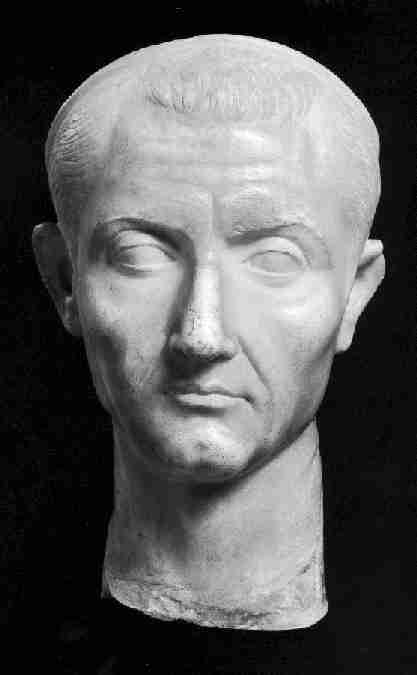
|
A great story is attached to this book, it appeared as episodes
in Rome, as Caesar was with his legions in Gaul (France) fighting
with the local Celts (who later moved to Britannia). His victories
and the action depicted in this book electrified the Roman public
and they cheered him as a great hero- much to the nervousness of
the Senate which had the right to be leery, for Julius Caesar, hero
of these Commentaries, entered Rome with his Legions and became
the first Emperor against the will of the Senate, but with that
of the people, partly because he was so popular!
|
Italy
Latin
|
|
Lucretius
1st Century
B.C.
On the Nature of Things
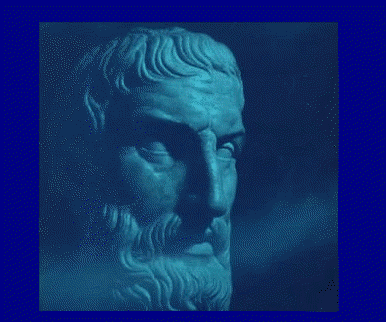
|
Way ahead of its time, On the Nature of Things tells us that
nature is made up of 'uncuttable pieces' called atoms. As we know,
Lucretius was correct, 2,100 years ago! The amazing beginning is
his appeal to Venus for help in writing what he knew would be an
important work. He is a little arrogant in the book but it serves
to remind us of Greco-Roman master morality. A look at his face
here to the left clues us in that Lucretius was a severe and asture,
but just, man.
|
Italy
Latin
|
|
Livius
1st Century
B.C.
The War with Hannibal
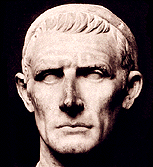
|
The most dramatic conflict in Roman history, the 2nd Punic War
against Carthage is the focus of this exciting depiction of the
whole conflict by Livy. All of the fantastic and true situations are
presented: the elephants and exotic beast used by Hannibal against
Scipio, the fear in Rome during the siege and the shocking Battle
of Zama outside of Carthage (modern Tunisia, North Africa), where
the decisive battle of Scipio vs. Hannibal takes place.
|
Italy
Latin
|
|
Ovid
1st Century
Metamorphoses
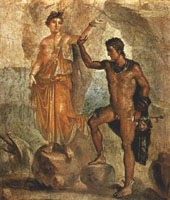
|
Famed poet of the Roman world, this book (written in 1 AD) is
the source of most of our knowledge on Roman mythology, because
Ovid actually states, "with the help of the gods (hopefully), I
will discribe the changes in the world from the beginning to the
present times." Quite a task! Along the way, we are treated to humor,
love and fun. The stories of individual gods and famous humans interacting
and how that relationship had evolved the 'modern Roman' are entertaining.
|
Italy
Latin
|
|
Virgil
1st Century
The Aeneid
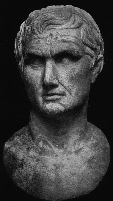
|
Friend of Emperor Augustus, Virgil continues the tradition
of Homer in writing the epic of all Roman literature. Here we find
teaching of Roman patriotism, loyalty and citizenship ingrained
in this legendary story of the beginnings of the City of Rome itself.
The exciting story goes back to the Trojan War where, under the
eyes of the conspiring Greco-Roman gods, refugees from Troy after
the battle make their way to Italy and found the city, as well as
have great adventures.
|
Italy
Latin
|
|
Cicero
1st Century
On the Good Life
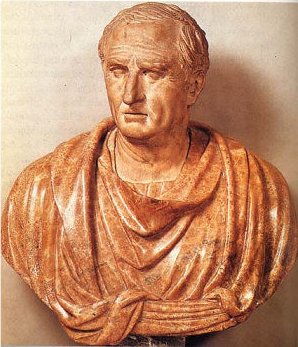
|
The hero of people who love high culture who are interested
in self-discovery, On the Good Life figures out the best course
of action, values and cultural highpoints that lead one to a good
life. The dignity of the citizen and his relationship to the state
is discussed, the value of friendship and what it is, how to give
a good speech and the 'Dream of Scipio' are some of the varied and
powerful topics tackled by Cicero, probably the best pure writer
of the Roman world.
|
Italy
Latin
|
|
Christian Sacred Text
1st Century
The New Testament
of the Holy Bible
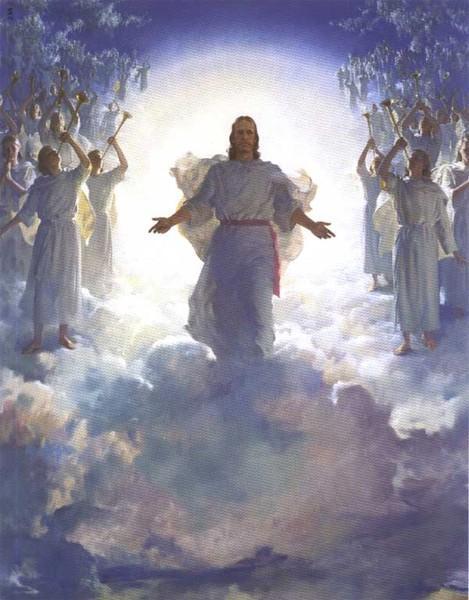
|
The life story and teachings of Jesus Christ, and the foundation
of the Christian religion. The Testament begins with the birth of Christ in the
manger in Bethlehem, his growing up in Nazareth and all of his teachings,
including the Sermon on the Mount at Jerusalem, and following with
him as he walked in Galilee. The
passion and the crucifiction are revealed as well as the raising
of Jesus from the dead and the transfiguration. Finally in Revelation,
the last book of the Bible, the prophecy for the return of Jesus
and the Judgement Day is fortold.
|
Levant
Greek
|
|
Tacitus
1st Century
The Annals
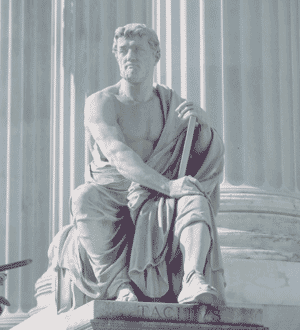
|
The Annals contain the history of Rome since the founding.
Written after the reign of Nero, the book is a damning account of
the imperial mindset, and the dangers of absolutist rule by emperors
who are not accountable, as the Senators once were, or at least
not to the same degree, to the people. Its surprising how well versed
in classical liberalism Tacitus was, he points out the correlation
between individual liberty (of thought especially) and moral restraints
self imposed by good citizens of a just government.
|
Rome
Latin
|
|
Plutarch
2nd Century
The Lives of the Noble Grecians
and Romans
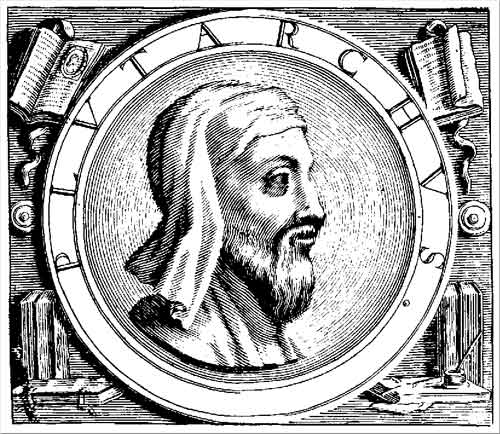
|
An outstanding history of the entire Classical Period told through
the biographies of all the famous personages from Greece and Rome,
Plutarch's 'Lives' reinvigorated the study of Greek and the classics
during the Renaissance period, when original copies were brought
to Italy from Constantinople in 1453 upon the Muslim conquest of
that city. It became the handbook for the Renaissance gentleman's
knowledge of the classics, and all of the American founding fathers
had it as a textbook in school.
|
Greece
Greek
|
|
Galen
2nd Century
On the Natural Faculties
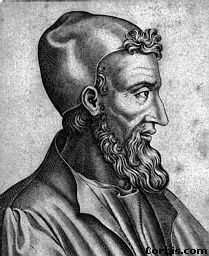
|
This is the famous medical book from old times, as it contains
a detailed description and analysis of all parts of the body. Essentially,
it is the masterpiece work of human anatomy. Heart, brain, lungs,
kidneys, liver, arteries, reproductive systems and all of the other
features of the human machine are taken into account in this, another
of those long running textbooks that helped re-awaken medical science
during the Renaissance in Italy.
|
Asia Minor
Latin
|
|
Juvenal
1st Century
The Sixteen Satires
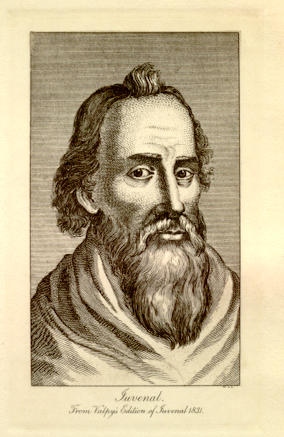
|
"He simply hangs a series of mortal portraits on the wall
and forces us to look at them!" Juvenal lashes out at some
of the things about Roman society that we still don't like today-
like government corruption and obsession with base things,
lowly things, that was
such an issue in imperial Rome- like blindly accepting things like lifelong
servitude and gladiatorial combat as 'just fine.' Jeuvenal had no
trouble picking apart the Roman psyche and laying it out for us
to see, too.
|
Italy
Latin
|
|
Emperor Marcus Aurelius
2nd Century
Meditations
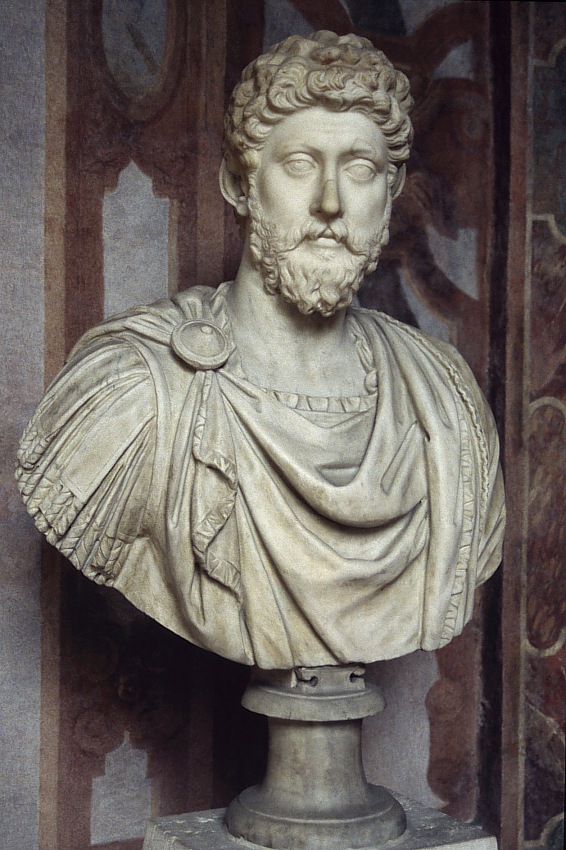
|
When an emperor speaks, it does well to listen. Marcus Aurelius
presided to 180 AD (you may remember him as the old emperor who
died at the beginning of 'Gladiator'). History tells us that he
was the most learned man to ascend to the Roman emperorship, and
the 'Meditations' are a sublime and outstanding foray into his thoughts.
Today, some psychologists prescribe it as a kind of 'self-help'
book because it lays out philosophy and life very well. It helps
people 'find themselves' as a book of self-reflection of a great
man, who overcame obstacles and dealt with other people. A study
of human behavior features as one of the main components of this still famous
book.
|
Italy
Latin
|
|
Traditional Buddhist
The Buddhist Scriptures
3rd Century
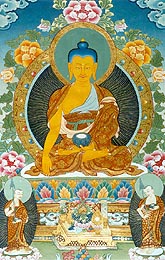
|
There are many schools of Buddhism but certain universal concepts
unite all of them. The Buddhist Scriptures is the source of our
knowledge of Buddhist values- based on the teachings of Gautama
the Buddha, who lived in the 500s B.C. but never wrote anything down.
Gautama renounced his wealth and palace life in exchange for complete
freedom- setting himself and many later followers of Buddhism onto
a lifelong path of meditation... to Nirvana. Here we find the Four
Noble Truths to help and embrace in that pursuit.
|
India
Sanskrit
|
|
Saint Augustine
5th Century
City of God
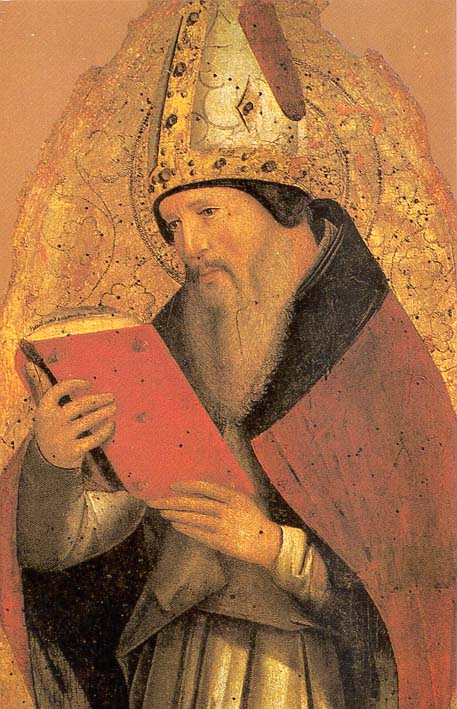
|
One of the capstone works of Christian philosophy and idealism,
this book comforted the hearts of Romans during the Fall of the
Empire. It reminded people amongst the chaos that even though things
seemed bad in their 'earthly city,' there was the still yet the
more important 'heavenly city:
the City of God. "That glory which Rome failed to attain will
only be realized in the City of God, that heavenly Jerusalem forseen
in the Revelation." This towering work shows the power, the richness and the glory
of early Christian civilized culture. It also tells the story of the early church
and human history, taken in relation to all eternity!
|
Italy
Latin
|
|
Traditional Jewish
5th Century
The Talmud
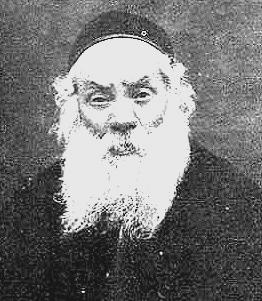
|
Like the Old Testament and The Odyssey, the Talmud was compiled
over the course of many centuries. The Talmud encompasses and legislates
the essence of Judaism. It is almost impossible for regular people
to read the whole thing (its as big as an encyclopedia, and is full of complex
spiritual and religious
law and text!)--for it was made by Jewish rabbis during the centuries
after the dispersion of the Jews from Israel to Mesopotamia,
North Africa, Spain and other places in Europe. In its most basic,
the Talmud is the saving grace of the Jews because in diaspora,
it was difficult to keep the small scattered groups of Jews 'Jewish' at
all, so the
Talmud teaches people, in fact, their identity as children of Abraham.
|
Mesopotamia
Hebrew
|














